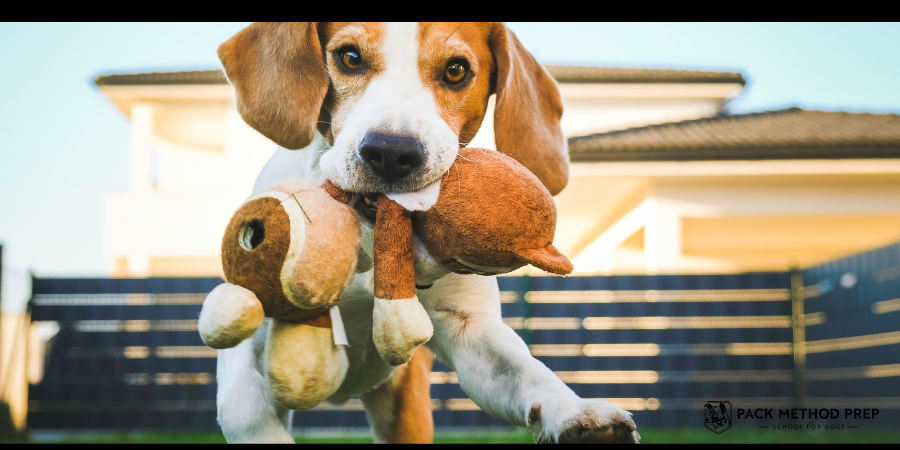
Unleashing Fun: Dog Park Tips for a Pawsome Experience
Hey dog lovers! Zoe Stathis here, your guide to happy and well-trained pups. With over ten years of experience in dog training, I’m ready to turn your stressful dog park trips into tail-wagging fun.
Dog Parks: A Great Place, But Sometimes Chaotic
Dog parks are fantastic for exercise, socializing, and keeping your furry friend happy. But sometimes, these social spaces can get a little ruff. Don’t worry, though! We can learn how to keep things fun and safe for all the pups.
Understanding Your Dog’s Body Talk
Dogs are masters of nonverbal communication! They use their posture, facial expressions, tail wags (or lack thereof), and even vocalizations to tell us how they’re feeling. As a pet parent, being able to “read” these signals is key to understanding your dog’s needs and preventing potential conflicts at the park.
Here are some common body language cues to watch for:
- Happy and Playful: A relaxed posture with a wagging tail (held high and loose wags usually indicate more excitement) and soft eyes is a good sign. Playful bows with the front end down and rear end in the air are also a playful invitation.
- Uncomfortable or Tense: A stiff body, tucked tail, flattened ears, and whale eye (showing the whites of the eyeballs) can indicate anxiety or fear. Yawning and lip licking can also be signs of stress.
- Dominant or Aggressive: A high, stiff posture with a direct stare, hackles raised, and growling are all signs your dog feels threatened and may become aggressive.
By recognizing these signals, you can take proactive steps. For example, if you see your dog stiffen and stare at another dog approaching, gently redirect their attention with a favorite toy or move them to a different area to avoid a potential confrontation.
Early intervention can make a big difference in keeping the park a fun and safe space for all the pups.
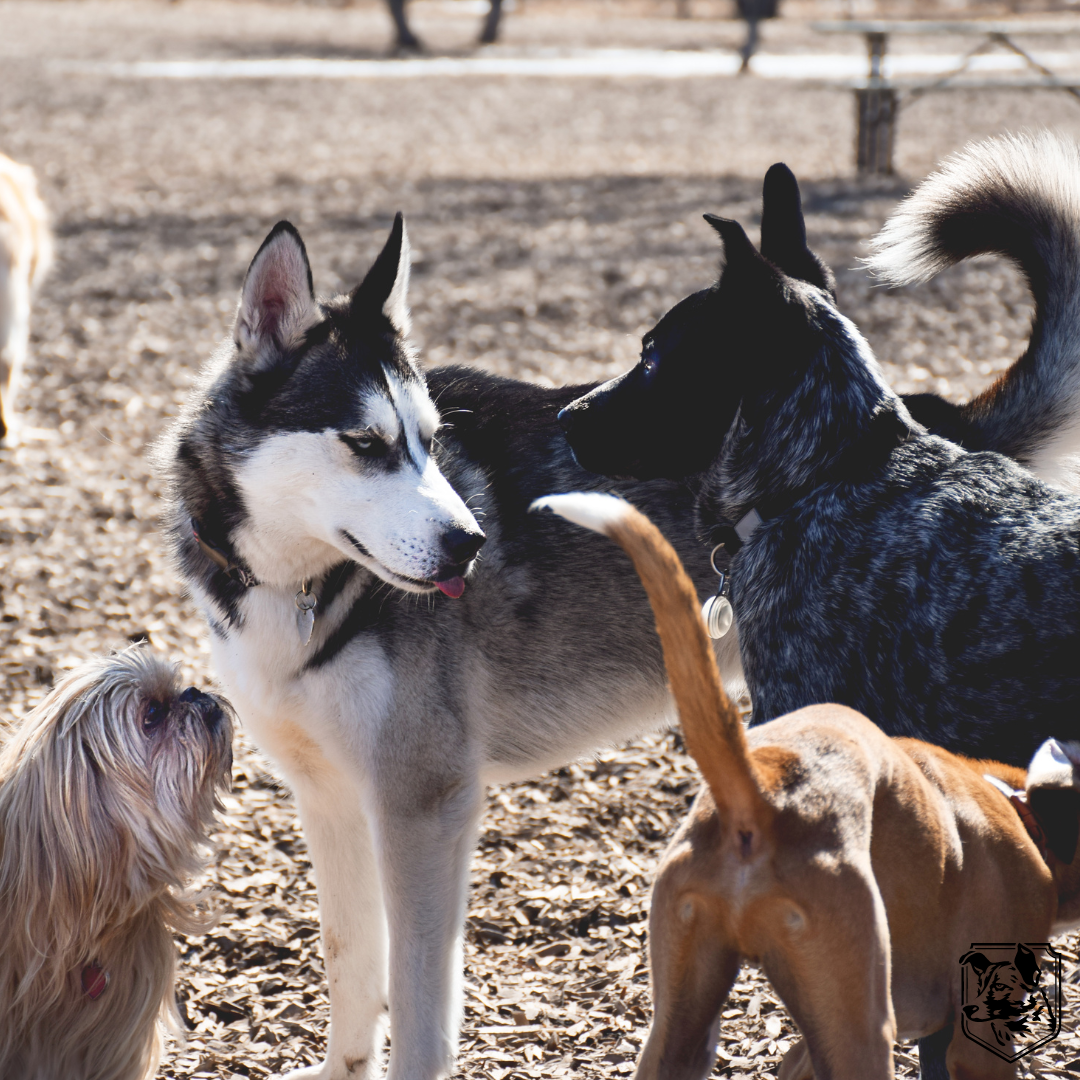
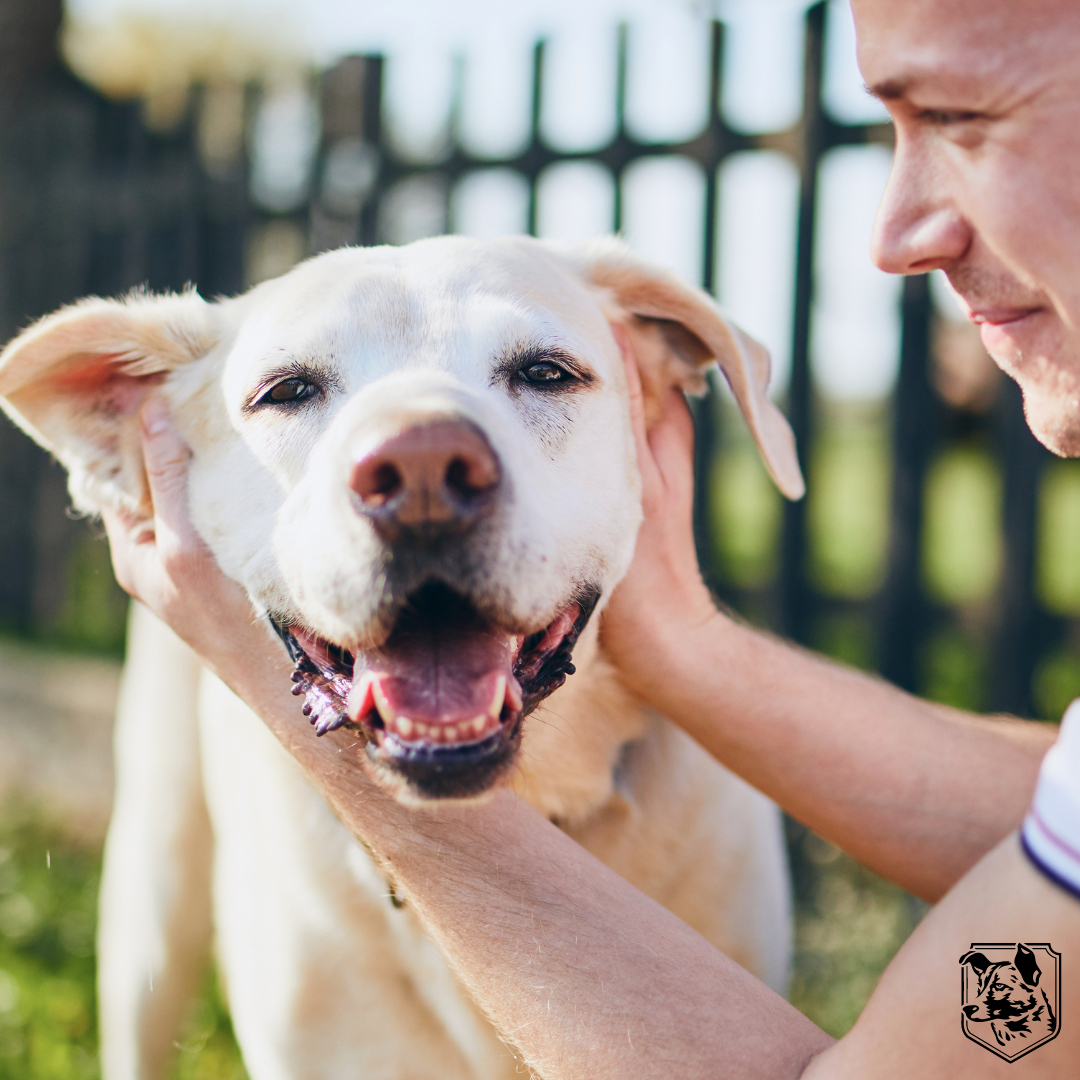
Every Dog Has Their Play Style
Every Dog Has Their Play Style: Finding the Furry Fun Bunch
Just like people have introverts and extroverts, athletes and bookworms, dogs have distinct personalities that shape how they interact and play. Some pups are bouncing balls of energy, craving boisterous games of chase or tug-of-war.
Others are more mellow, preferring gentle sniffing or quieter games like fetch with a soft toy. Understanding your dog’s play style is key to setting them up for successful park interactions.
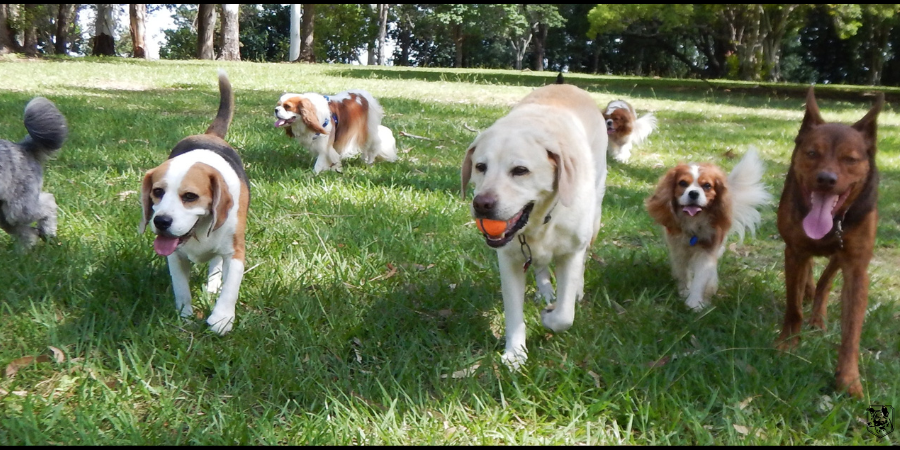
Speaking Dog: Understanding Body Language
Have you ever wondered what your dog is really thinking?
Dogs communicate a lot through their body language, facial expressions, and vocalizations. Learning to “speak dog” can go a long way in preventing misunderstandings and fostering a stronger connection.
For example, a wagging tail is often a sign of happiness, but it can also indicate excitement, nervousness, or even aggression depending on the context. Similarly, a dog who lowers their body and tucks their tail might not necessarily be submissive – they could be feeling scared or threatened.
By becoming more attuned to your dog’s body language cues, you can respond more appropriately to their needs and avoid potential conflicts.
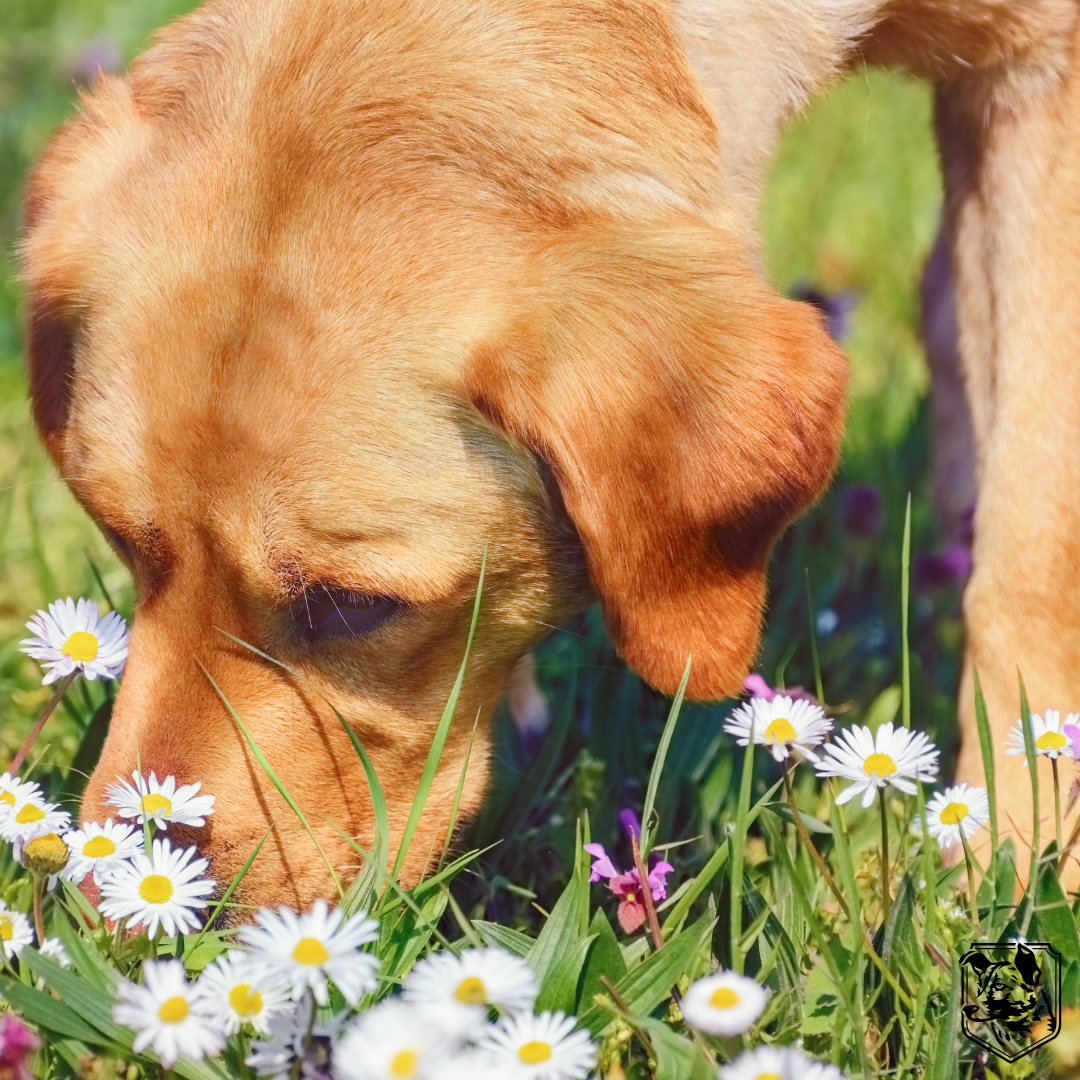
Here are some ways to identify your dog’s play preferences:
- Observe their interactions with toys: Does your dog get super excited and zoom around with a squeaky toy? Or do they prefer to calmly carry around a plush friend?
- Watch their body language: Does your dog initiate playful bows and enthusiastic barks, or do they seem more hesitant and reserved around other dogs?
- Pay attention to their energy level: Are they always bouncing and ready to wrestle, or do they tire easily and prefer short bursts of activity?
Once you understand your dog’s preferences, you can become a play style matchmaker at the park. Look for dogs exhibiting similar energy levels and play behaviors. Here are some examples:
- High-energy chasers: Look for other dogs who enjoy chasing games, perhaps Border Collies or Jack Russell Terriers.
- Gentle sniffers: Consider pairing your dog with a laid-back Beagle or Basset Hound who might also prefer a calmer exploration of the park.
- Playful tuggers: Find another dog who loves a good game of tug-of-war with a rope toy. Labrador Retrievers and Golden Retrievers are often fans of this game.
By keeping play style compatibility in mind, you can help your dog find playmates they truly enjoy interacting with. This reduces stress for everyone involved and fosters positive park experiences filled with fun and happy memories.
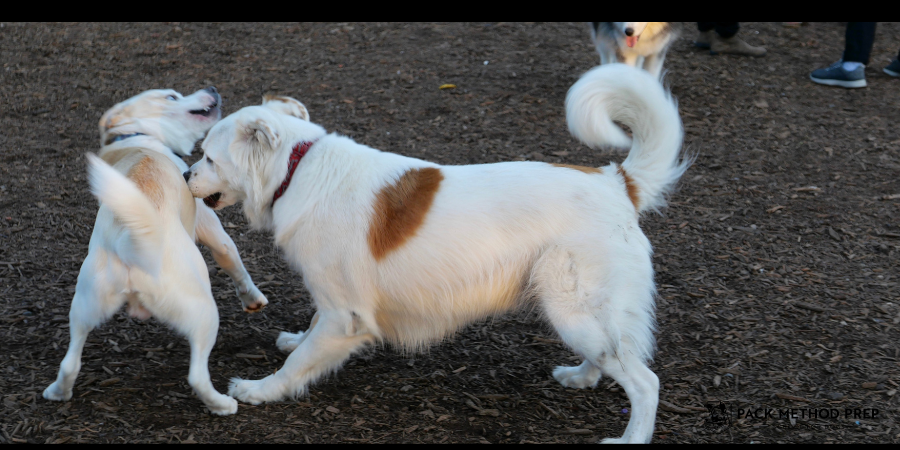
Keeping the Peace at the Park
Space Matters: Dogs need space to feel comfortable, just like us! Try going to the park during less crowded times or finding a bigger park with plenty of room to roam. A relaxed environment is key to a happy pup.
Sharing is Caring: Sometimes, dogs might try to guard things like toys or shady spots. This is natural behavior. To avoid arguments, consider leaving your dog’s favorite toys at home. Also, make sure there’s plenty of water for everyone to share.
Be a Chill Pack Leader: Your dog picks up on your vibes! If you’re calm and watchful, your dog will feel calmer too. By projecting a relaxed and attentive attitude, you can create a peaceful atmosphere at the park. Remember, your presence and positive energy are important for a fun outing.
Keeping an Eye on Your Pup: Freedom at the park doesn’t mean no supervision. Watch your dog closely, learn their signals, and be ready to step in if needed.
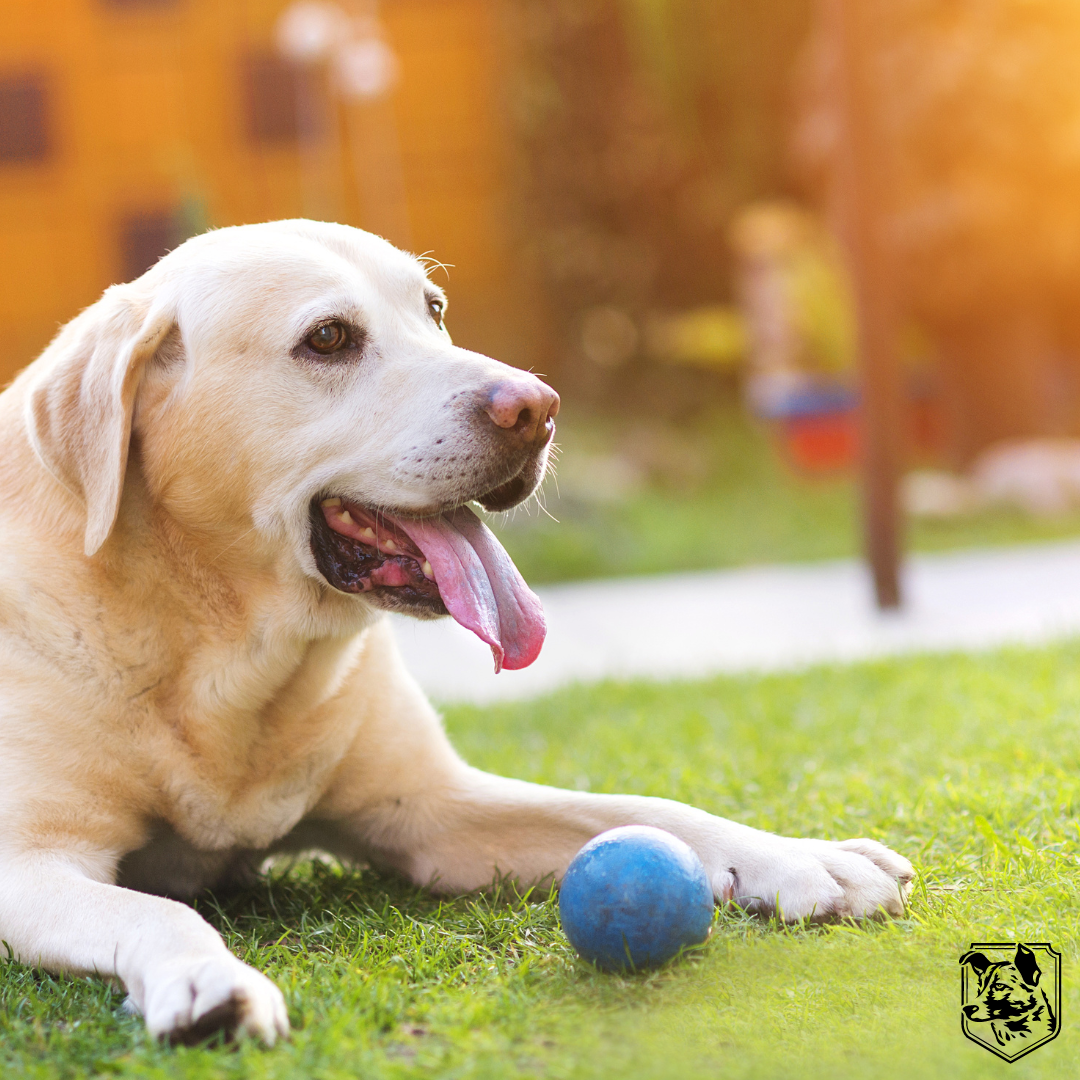
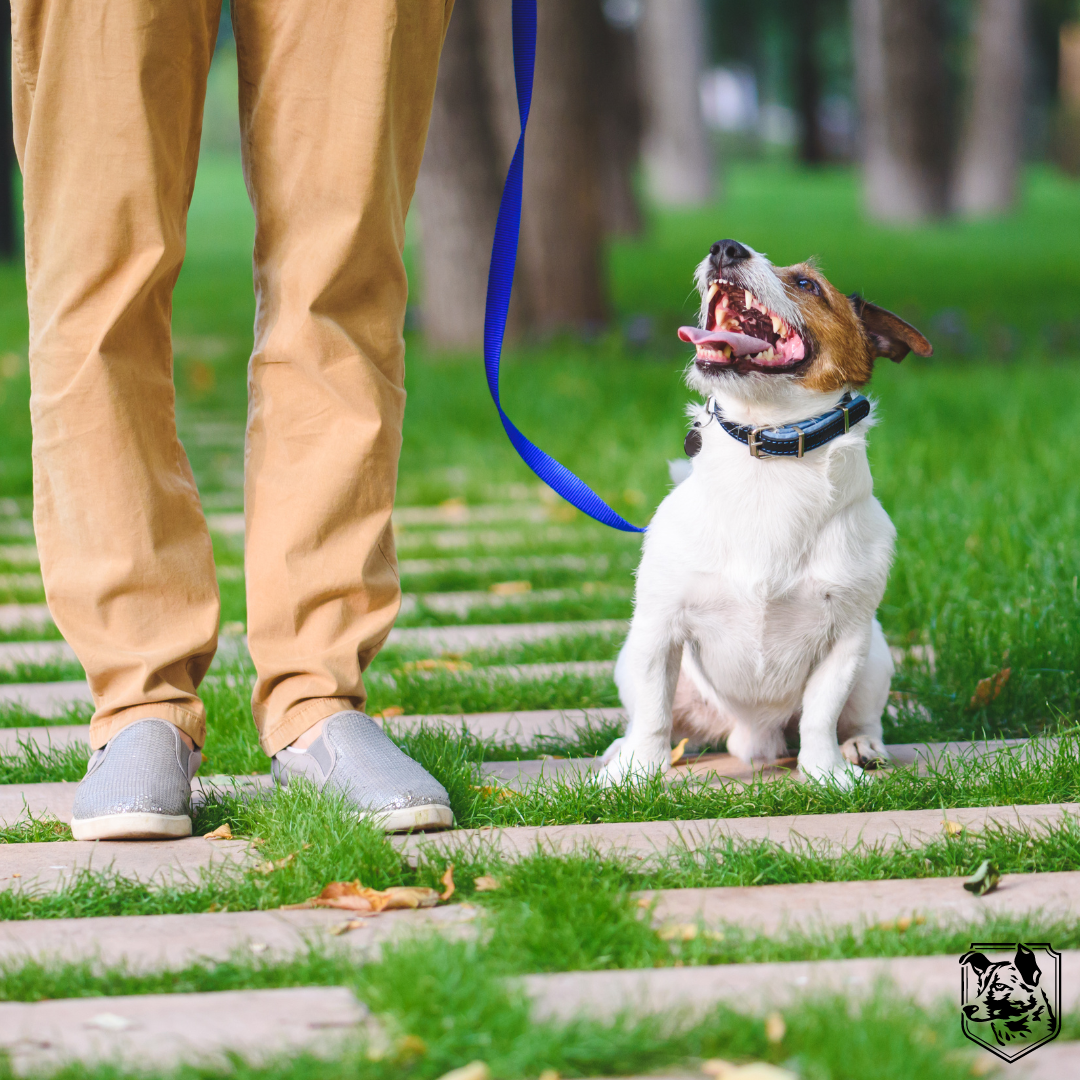
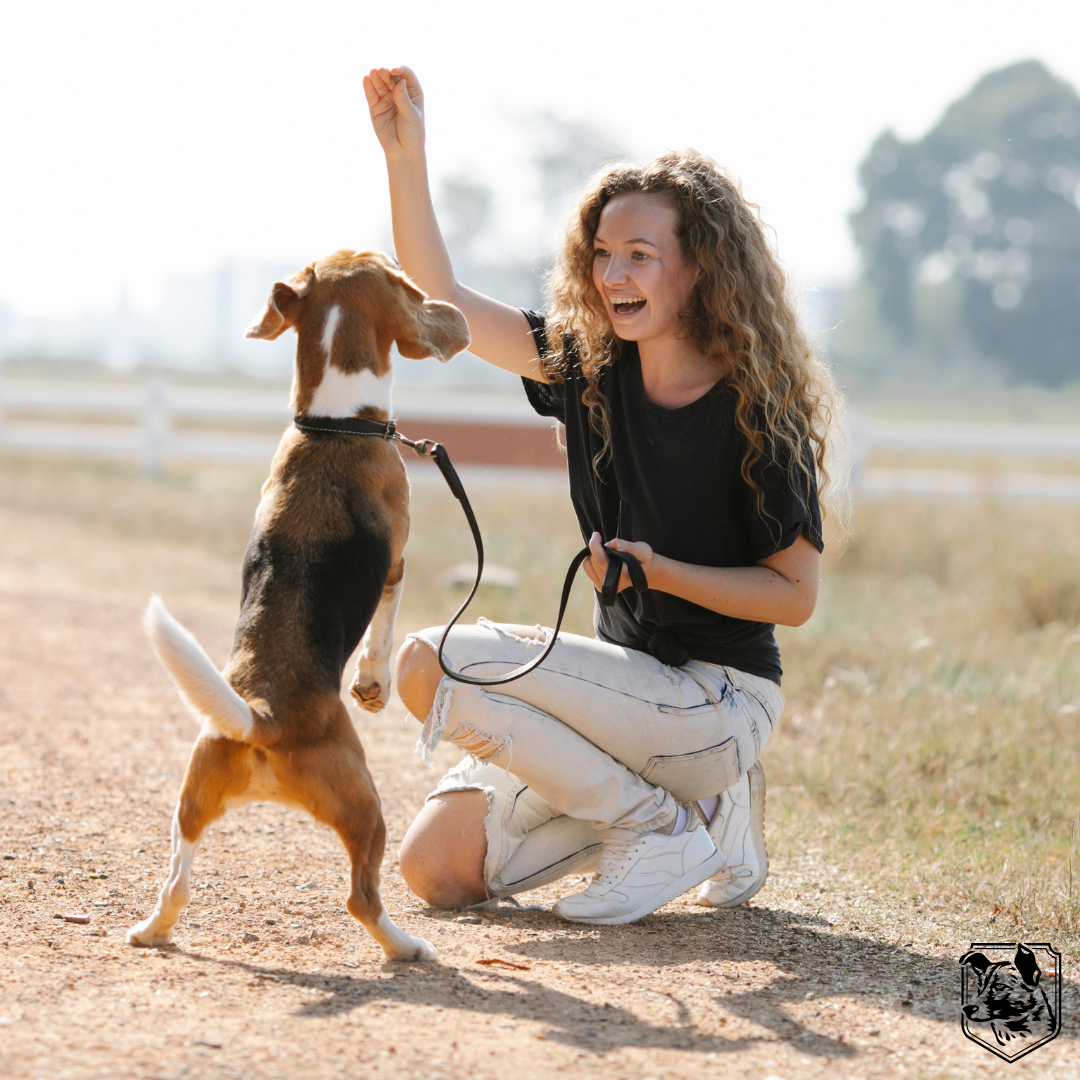
Building a Happy and Social Dog
The more your dog interacts with other dogs in a positive way when they’re young, the better they’ll be at navigating the park scene. This “socialization” helps them develop the skills they need to play nicely with others.
Know When to Take a Break: Pay attention to your dog’s well-being. If they seem uncomfortable or unwell, skip the park and head home for a quiet day. A healthy and happy dog is a priority!
Become the Best Pet Parent You Can Be!
Looking for San Diego dog trainers to help you and your furry friend have the strongest bond possible? Pack Method Prep is here for you! We offer a variety of training options to fit your needs, whether you want to help your dog become a social butterfly or overcome specific behavioral challenges.
- Private Training: Work one-on-one with our expert trainers to achieve amazing results.
- Group Classes: Join our fun community classes and let your dog learn and socialize with other pups.
- Virtual Consultations: Get expert advice from anywhere with our convenient online training options.
Ready to transform your dog park trips into positive experiences? Enroll in our training programs and become the informed, compassionate pet parent your dog deserves. Let’s create joyful park memories and a lifetime of love with our canine companions!